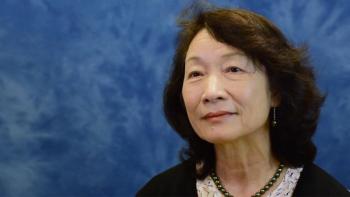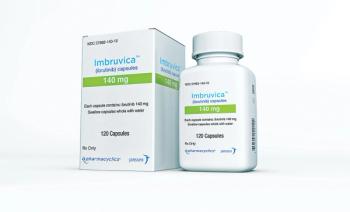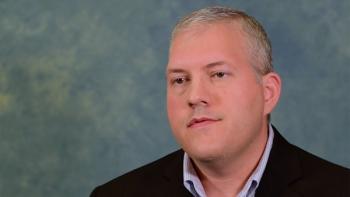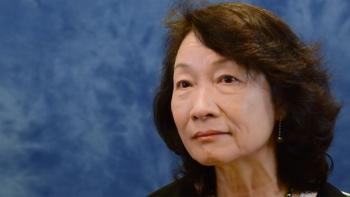
It is an exciting time for science, but lest we forget, those of us who provide direct patient care are also charged with practicing the art of medicine.

Your AI-Trained Oncology Knowledge Connection!


It is an exciting time for science, but lest we forget, those of us who provide direct patient care are also charged with practicing the art of medicine.

This video reviews the benefits of proton therapy and some of the barriers and challenges preventing the integration of the technology into regular practice.

Aprepitant plus palonosetron and dexamethasone showed early promise for preventing chemotherapy-induced nausea and vomiting among patients with colorectal cancer who are undergoing FOLFOX chemotherapy, according to results of a small pilot study.

Combined analysis of risk factors predicts long-term cardiovascular complications in childhood cancer survivors more accurately than single-factor assessments.

This slide show highlights some of this year’s FDA approvals of cancer treatments, including new therapies and indications for breast cancer, lung cancer, and various blood cancers, as well as the first approval based not on disease site but by tumor marker.

A precision medicine clinical trial based on genomic abnormalities has screened nearly 6,000 patients in just under 2 years and matched 18% of tumors screened with a genetic mutation to one of 30 treatment arms.

Men with Medicaid are more likely to present with metastatic prostate cancer than men presenting with prostate cancer who have private insurance, according to a new study. There are racial disparities in terms of prostate cancer outcomes among those privately insured, but not among Medicaid recipients.

The FDA has approved rolapitant injectable emulsion in combination with other antiemetics in adults to prevent delayed chemotherapy-induced nausea and vomiting.

The Commission on Future Research Priorities in the USA sets out 13 key priority areas to help focus the $2 billion of funding released to the NCI.

This slide show highlights some of the studies and analyses that have explored physical activity/exercise and its effect on cancer risk, as well as studies that examined physical activity and its effect on treatment side effects from chemotherapy, radiotherapy, and surgery.

This video highlights an education session on the challenge of perineural invasion in head and neck cancer from the 2017 ASTRO Annual Meeting.

This video highlights a large-scale profiling effort that seeks to identify and classify mutant alleles driving resistance to radiation therapy across different cancer types.

An increase in the number of approved cancer therapeutics has led to an associated increase in early-phase trials that have adopted a seamless approach.

Comprehensive geriatric assessments will play an increasingly important role in identifying patient frailty and personalizing geriatric oncology treatment, according to recently published reviews.

A recent study examined the influence of social interactions between cancer patients during chemotherapy sessions, finding that patients who spent time with other patients who died within 5 years had an increased risk of dying within 5 years themselves. Pardon me for being underwhelmed.

This video examines patient fears and misconceptions regarding radiation therapy for the treatment of breast cancer.

When presented with different options, patients perceived physicians that communicated face to face without the use of a computer as being more compassionate, professional, and as having better communication skills.

This video reviews results of a randomized trial comparing intensity modulated radiation therapy vs passively scattered proton therapy for locally advanced non–small-cell lung cancer.

Adherence to antiemetic regimens for patients undergoing emetogenic cancer chemotherapy is poor, according to an online survey of oncology nurses in the United States.

This video examines results of a study that looked at treatment tolerability in elderly patients with HPV-positive oropharyngeal squamous cell carcinoma.

A new study found that Hodgkin lymphoma patients treated with consolidative proton therapy after chemotherapy had “excellent” early relapse-free survival rates and no early grade 3 radiation-related toxicities.

Quality of life was not improved with the use of early palliative care for patients recently diagnosed with malignant pleural mesothelioma, according to data presented at the World Conference on Lung Cancer.

Adding ginger extract capsules to a standard prophylactic antiemetic did not improve chemotherapy-induced nausea and vomiting in patients undergoing high-dose cisplatin chemotherapy.

This article includes a succinct review of current research into exercise in the cancer setting and a discussion of the American College of Sports Medicine exercise recommendations for cancer survivors. Common acute, long-term, and late effects of cancer and its treatment are also described in the context of ways in which these side effects impact the ability to exercise.

Through this vital new partnership, the Society for Integrative Oncology and ONCOLOGY seek to make integrative medicine part of standard clinical oncology practice, and to help physicians and patients make informed decisions about complementary and alternative medicine to maximize benefits and minimize harms.

In this interview we discuss health disparities in cancer care, how redesigning cancer clinical trials can address some of these disparities, and goals for the “next generation” of cancer health disparities research.

Serial PSA testing with early salvage radiotherapy is a viable option in most high-risk men.

The data for adjuvant radiotherapy remain strong.

This video examines changes in insurance status after implementation of the Affordable Care Act among cancer patients who received radiation therapy.

Women who take multivitamin supplements before their breast cancer diagnosis and during chemotherapy appear to be less likely to develop the debilitating, often long-lasting symptoms of chemotherapy-induced peripheral neuropathy, according to a new study.